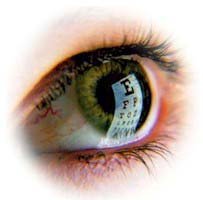Hair Loss Remedies: When They Can Help
There are those who claim they can reverse balding with natural hair loss remedies, and there are prescription medications designed to act as hair loss remedies. There are markets for both natural and prescription hair loss remedies, and the proponents of either have reasons for their enthusiasm.
Rogiane and Propecia Rogaine and other well-known hair loss remedies contain minoxidil, which is the only FDA-approved over-the-counter treatment for baldness. Other than minoxidil, only finasteride, marketed as Propecia, is approved as a treatment for hair loss, and it was not originally developed for that purpose.
Finasteride was originally developed as a treatment for prostate problems; because it inhibits the production of dihydrotestosterone, it may also prove useful in preventing hair loss. Unlike Rogaine, which is applied directly to the scalp, Propecia must be taken orally in pill for, and has been proven to cause birth defects so is not appropriate as one of the hair loss remedies for women.
The choice of hair loss remedies is largely dependent on the underlying cause of baldness. Genetically transmitted male pattern baldness, in spite of it name, affects both males and females, and can range from a small thinning of hair at the top of the scalp to the complete loss of all bodily hair. Estimates are that male pattern baldness affects almost two in five men, so hair loss remedies will continue to be in demand for a very long time.
The hormone dihydrotestosterone is thought to be the major underlying factor in male pattern baldness; minoxidil and finasteride both decrease the amount of dihydrotestoterone produced from the body’s testosterone. Because of their inhibiting effects, including minoxidil and finasteride in hair loss remedies seems like a logical step, but Rogaine has not proven effective in all users. Some have seen a complete return of their lost hair; others have seen light new growth, and others have not had any regrowth at all.
Other Causes Of Hair Loss Hair loss can be the result of things other than hormonal imbalances; scalp infections, allergic reactions, and hair treatments which use harsh chemicals or require the hair to be pulled tight enough to interfere with the scalp’s circulation are also suspect.
In those cases, the hair loss will probably be short-term, and the hair will begin to grow back as soon as the conditions causing it are removed. If you have hair loss and think a past disease, allergy, or hair treatment might be responsible, talk to a physician before exploring any hair loss remedies on your own.
You can also find more info on Hair Loss Treatment Shampoo and Natural Hair Loss Treatments. Hairlosstreatmentshelp.com is a comprehensive resource to know about Hair loss Treatment.




No comments:
Post a Comment